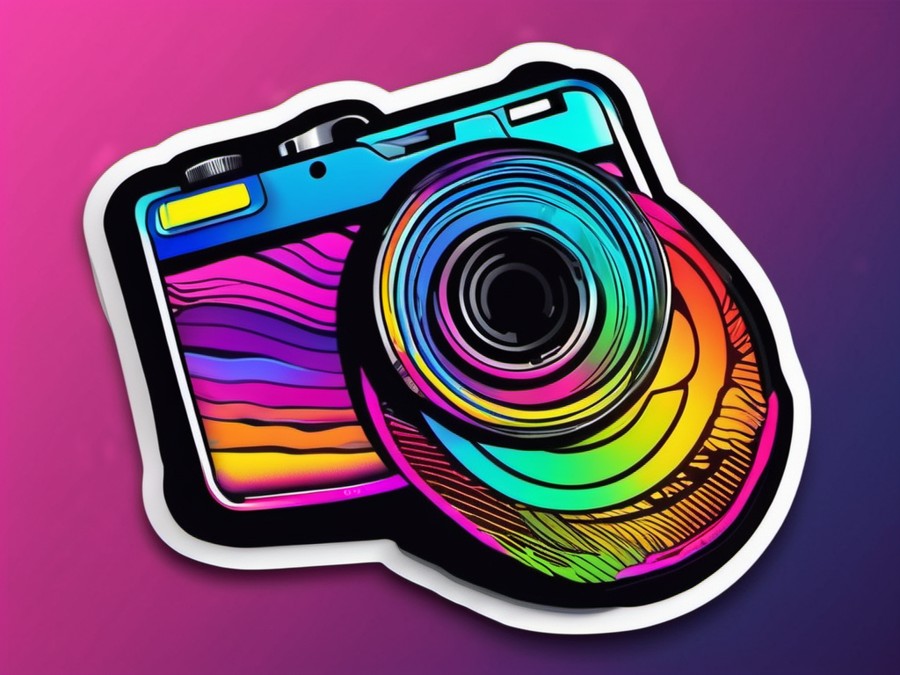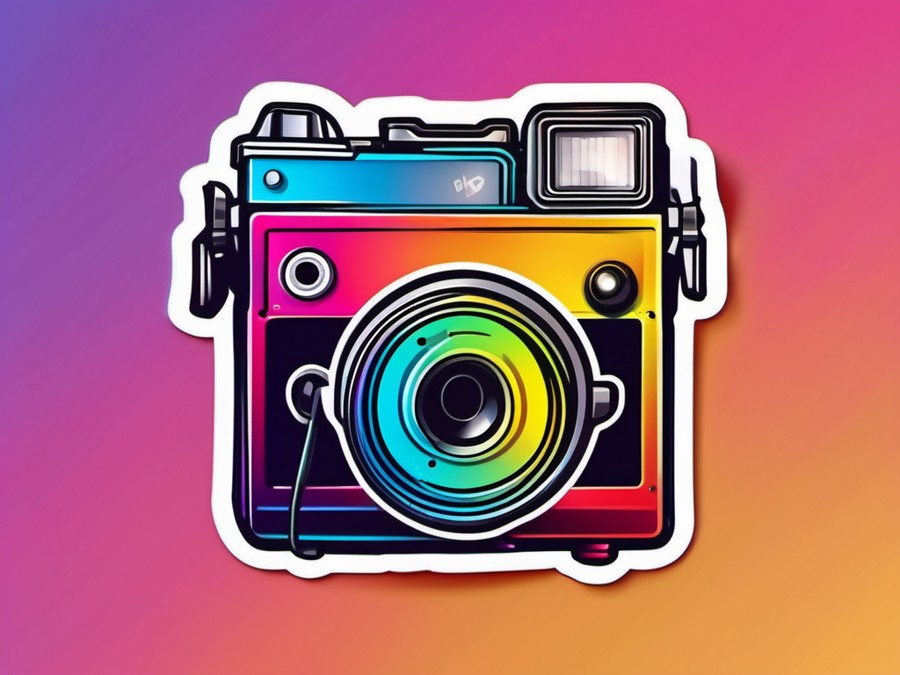· Charlotte Will · Body Mounted Cameras · 8 min read
What is the Best Body Mounted Camera for Security?
Discover the best body mounted cameras for security, tailored to meet your specific needs. Learn about key features, top models, and how to choose the right camera for your industry. Enhance surveillance capabilities and improve safety with expert insights and recommendations.

In today’s world, where safety and surveillance are paramount, body mounted cameras have emerged as essential tools for law enforcement, private security, healthcare professionals, and more. Whether you’re looking to enhance evidence collection, improve accountability, or bolster safety measures, finding the best body mounted camera for security is crucial. Let’s delve into what you need to know to make an informed decision.
Understanding Body Mounted Cameras: An Overview
Body mounted cameras, also known as body-worn cameras or bodycams, are compact devices designed to be worn on the body, typically by security personnel or law enforcement officers. They are distinct from traditional security cameras in that they provide a portable, first-person perspective. Unlike fixed surveillance systems, bodycams move with the user, capturing real-time footage from various angles and locations.
The Importance of Body Mounted Cameras in Security
Enhancing Surveillance Capabilities
Body mounted cameras are invaluable for enhancing surveillance capabilities. Their mobility allows for dynamic footage capture, providing a comprehensive view of situations as they unfold. This first-person perspective is particularly valuable in high-stress and rapidly changing environments, such as law enforcement or emergency response scenarios.
Evidence Collection for Law Enforcement
In law enforcement, body-worn video plays a critical role in evidence collection. It helps document interactions between officers and the public, providing irrefutable evidence that can be used in court. This serves to enhance transparency and accountability, which is essential for building trust between law enforcement agencies and the communities they serve.
Improving Safety in High-Risk Environments
For professionals working in high-risk environments, body mounted cameras can be lifesaving. For example, in healthcare settings, these cameras can document clinical procedures and collect evidence in emergency situations. In private security, they help protect personnel and valuable assets by providing a record of incidents or suspicious activities.
Factors to Consider When Choosing the Best Body Mounted Camera
Video Quality and Resolution
High video quality is non-negotiable for a security camera. The importance of high resolution in footage cannot be overstated, especially in scenarios where the camera might need to capture details such as license plates or facial features. Generally, a minimum resolution of 1080p is recommended for optimal footage clarity.
Durability and Ruggedness
The environments where bodycams are used can be harsh. From law enforcement operations to outdoor surveillance, these cameras need to withstand various conditions. Durability matters because a fragile camera is not only impractical but also a safety risk. Look for cameras with robust, rugged designs that can handle drops, extreme temperatures, and moisture.
Ease of Use
In high-stress situations, ease of use is vital. The best body mounted cameras should be user-friendly, allowing for quick deployment and operation even when under pressure. This includes intuitive controls, clear displays, and features that streamline the user experience.
Battery Life and Power Management
Battery life is a critical factor, especially for professionals who need to be on the move all day. The factors affecting battery life include recording duration, video quality, and additional features like night vision or GPS tracking. To ensure efficient power management, consider cameras with robust battery systems and features like low-power modes or quick-charge capabilities.
Storage Capacity and Data Management
Ample storage capacity is essential for storing high-quality video footage. However, data management goes beyond just storage; it also includes how the camera handles data transfer and security. Options for data management include built-in storage, cloud storage, or the ability to connect to external devices for data offloading.
Top Features to Look For in a Body Mounted Security Camera
Pre-Record and Buffering
Pre-record buffer is a crucial feature that captures a few seconds of footage before the camera is activated. This ensures that you don’t miss any critical moments leading up to an incident, significantly enhancing the reliability of your evidence.
Night Vision and Low Light Performance
Good night vision is essential for security cameras, as many incidents occur in low-light conditions. Modern bodycams use advanced technologies like infrared (IR) illumination to provide clear footage even in darkness.
Wireless Connectivity and Data Transfer
Wireless connectivity enables real-time data transfer, which can be crucial in emergency situations. Secure data transfer methods ensure that sensitive information remains protected and only accessible by authorized personnel.
GPS Tracking and Timestamping
GPS tracking adds a layer of reliability to your footage by indicating the exact location where the video was recorded. Timestamping works in tandem with GPS, ensuring that each frame of video is accurately time-stamped. This combination enhances the credibility of the footage as evidence.
Body Mounted Cameras: Use Cases in Different Industries
Law Enforcement and Public Safety
In law enforcement, body mounted cameras have become integral tools for everyday policing. They enhance transparency and accountability, helping to build trust within communities. Additionally, the footage collected can serve as invaluable evidence in court cases, ensuring that justice is served accurately.
Private Security and Surveillance
In private security, bodycams protect both personnel and valuable assets. By providing a record of incidents or suspicious activities, these cameras help deter crime and facilitate quicker resolution of security breaches. They are particularly useful in sensitive areas like data centers or high-value storage facilities.
Healthcare and Emergency Response
In healthcare settings, bodycams can document clinical procedures and collect evidence in emergency situations. This is especially useful for medical professionals who need to document patient interactions and provide evidence in case of disputes. This use case is further explored in What is the Best Body Mounted Camera for Medical Professionals?.
Body-Worn Camera vs. Dashboard Camera: Which is Better?
Advantages of Body Mounted Cameras
Body mounted cameras offer unparalleled portability and versatility. They provide better footage angles and perspectives, capturing the user’s field of view accurately. This is particularly beneficial in situations where a dashboard camera might not be able to capture all the necessary details.
When Dashboard Cameras Might be Preferable
Dashboard cameras have their own advantages, such as stability and fixed positioning, which can be beneficial for traffic monitoring and enforcement. However, they lack the mobility and dynamic perspective offered by bodycams.
For a more detailed comparison, check out What is the Best Body Mounted Camera for Law Enforcement?.
Popular Body Mounted Cameras: A Comparative Analysis
Axon Body 3
The Axon Body 3 is a popular choice among law enforcement agencies. It offers high-quality video, robust durability, and advanced features like pre-record buffer and GPS tracking. However, its high price point might be a downside for some users.
Vievu LE5
The Vievu LE5 is known for its ease of use and reliable performance. It boasts excellent battery life and clear video quality, making it a solid choice for everyday use. However, some users might find its design less rugged compared to other models.
Panasonic Arbitrator
The Panasonic Arbitrator stands out with its unique features, such as advanced video analytics and customizable settings. It is particularly favored for its high-quality footage and durable build, making it suitable for various applications, including law enforcement and private security.
For more information on durable cameras, see What is the Most Durable Body Mounted Camera for Outdoor Use?.
How to Choose the Best Body Mounted Security Camera
Define Your Needs and Budget
Before making a purchase, it’s essential to identify your key requirements. Consider the specific needs of your industry, such as the importance of night vision for law enforcement or durability for outdoor use. Balancing these needs with your budget will help you find the best option.
Reading Reviews and Seeking Recommendations
User reviews and expert opinions can provide valuable insights into the reliability and performance of different models. Websites like Amazon, as well as industry-specific forums, can be excellent resources for unbiased opinions.
Testing and Demonstrations
Whenever possible, hands-on experience with the product is invaluable. Attending demonstrations or requesting trial periods can help you assess whether the camera meets your expectations in terms of usability and performance.
Conclusion
Choosing the best body mounted camera for security involves considering a variety of factors, from video quality and durability to ease of use and additional features. Whether you’re in law enforcement, private security, healthcare, or any other field, the right camera can significantly enhance your capabilities and ensure that you have reliable evidence when it matters most.
FAQs:
What is the optimal resolution for a body mounted security camera? The optimal resolution for a body mounted security camera is generally 1080p. This provides clear and detailed footage that can be invaluable for evidence collection and surveillance.
How does pre-record buffer help in evidence collection? Pre-record buffer captures a few seconds of footage before the camera is activated, ensuring that you don’t miss any critical moments leading up to an incident. This can significantly enhance the reliability of your evidence.
Are there any legal considerations when using body mounted cameras? Yes, there are legal considerations to keep in mind. These include privacy laws, data protection regulations, and guidelines for recording and storing footage. It’s important to be aware of these laws in your jurisdiction.
Can body mounted cameras be used in all weather conditions? Many modern bodycams are designed to withstand various weather conditions, including rain, snow, and extreme temperatures. However, the specific durability of a camera should be checked to ensure it meets your needs.
What is the typical battery life of a body mounted security camera? The typical battery life varies by model, but many modern cameras offer between 6 to 12 hours of continuous recording. Battery life is influenced by factors like video quality, additional features in use (e.g., night vision), and environmental conditions.
For more detailed insights into other types of cameras, explore our articles on What is the Best Film Camera for Landscape Photography? and What is the Best Camera for Astrophotography?.




